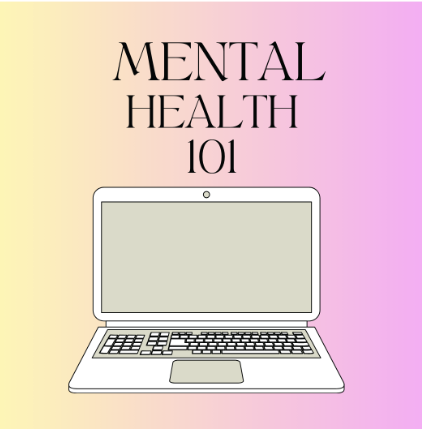The Center for Public Policy and Health hosted a virtual U Good “Mental Health 101” event Wednesday to raise awareness about mental health and to provide information about the basics of mental health, stigmas and mental distress.
U Good events are designed to provide Kent State students with an understanding of mental health and substance misuse. These events aim to motivate, involve and educate Kent State students.
Falasha Mahadevia, an undergraduate research assistant in the College of Public Health, guided the audience during this virtual webinar to examine the importance of learning and discussing mental health.
Mahadevia discussed the definition of mental health, which includes not only emotional well-being but also psychological and social well-being. Mental health can affect how a person feels and acts.
She also explained that mental distress can include discomfort and tension and can be derived from larger stressors in life other than typical day-to-day stress a person experiences.
“[Mental distress] may lead to anxiety disorders. If not addressed, they can contribute to physical issues such as back pain and stomach problems,” Mahadevia said.
She said it’s common to hear that somebody is so stressed out that their stomach or back hurts.
“It’s important to recognize and pay attention to your mental health as equally as paying attention to your physical health,” Phillip Moore, a sophomore business management major, said.
To relate mind to body, Mahadevia gave the example that mental health problems are an anticipated part of life, just like physical problems.
“Nobody goes their whole life being 100% physically healthy, and nobody can go their whole life without being 100% mentally healthy either,” she said.
Stigma around mental health plays a big part in why people may not reach out for mental health assistance, Mahadevia said.
David Susman, a clinical psychologist stated that, “One of the most common reasons for not seeking help is fear and shame. People recognize the negative stigma and discrimination associated with having a mental illness.”
This stigma around mental health can prevent people from reaching out and getting mental health resources, due to potentially feeling shame or judgment from others.
Mahadevia explained that in order to reduce and prevent stigma around mental health, people need to openly discuss and increase their knowledge about mental illness. She also noted that helping to correct misinformation about mental illness is very important.
“We all have a responsibility to fight the stigma associated with mental health,” Mahadevia said. Learning how to avoid and address stigma can be very important for all of us.
“The more we normalize mental health, and the more we talk about it, the less stigma is going to be associated with it,” she said.
Kaitlyn Roth is a reporter. Contact her at [email protected].



Amita Doctor • Mar 1, 2024 at 5:24 am
So profound in today’s world, thank you for throwing light on such sensitive issue ⚘️
Harold A Maio • Feb 29, 2024 at 7:43 pm
—The Center for Public Policy and Health hosted a virtual U Good “Mental Health 101” event Wednesday to raise awareness about mental health and to provide information about the basics of mental health, stigmas and mental distress.
Do you think it possible that one day we will stop declaring there is a stigma to mental health issues as we stopped declaring rape/stigma? Do you think one day it will no longer be a part of education?
—-Stigma around mental health plays a big part in why people may not reach out for mental health assistance, Mahadevia said.
Is it the stigma or those of us contributing to it? Historically it has always been those contributing to that prejudice no matter how it was expressed or against whom or what. (See WWII and decide, was it the stigma of Jews, or those directing it? I know Hitler created fear but I do not recall Jews feeling “shame”. They knew precisely it ws not of or in them, but of and in Nazism.
—-David Susman, a clinical psychologist stated that, “One of the most common reasons for not seeking help is fear and shame. People recognize the negative stigma and discrimination associated with having a mental illness.”
Is it fear and shame or those who create that psychological fear and shame? Here is one response: Dr.Thomas Insel, former director of the National Institute of Health argued that the pretense stigma has hampered research, he takes issue with the term stigma:“ It’s sort of a victim(izing) word,” says Dr. Insel. “I think what we’re trying to do is get more people empowered and trying to talk about this more as discrimination or injustice. (edits mine)
What do you think David, is it the stigma or those declaring it? Is it the fear and shame or those creating it?
Harold A Maio, retired mental health editor